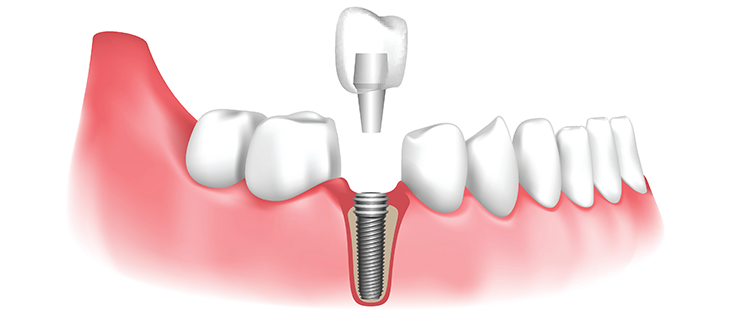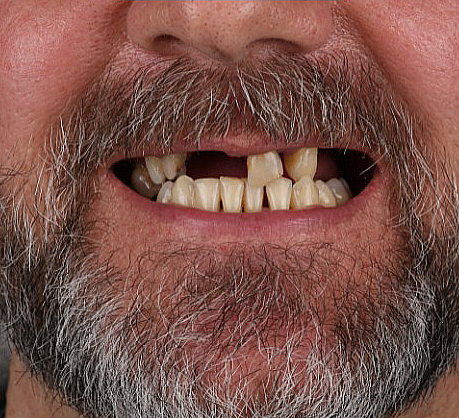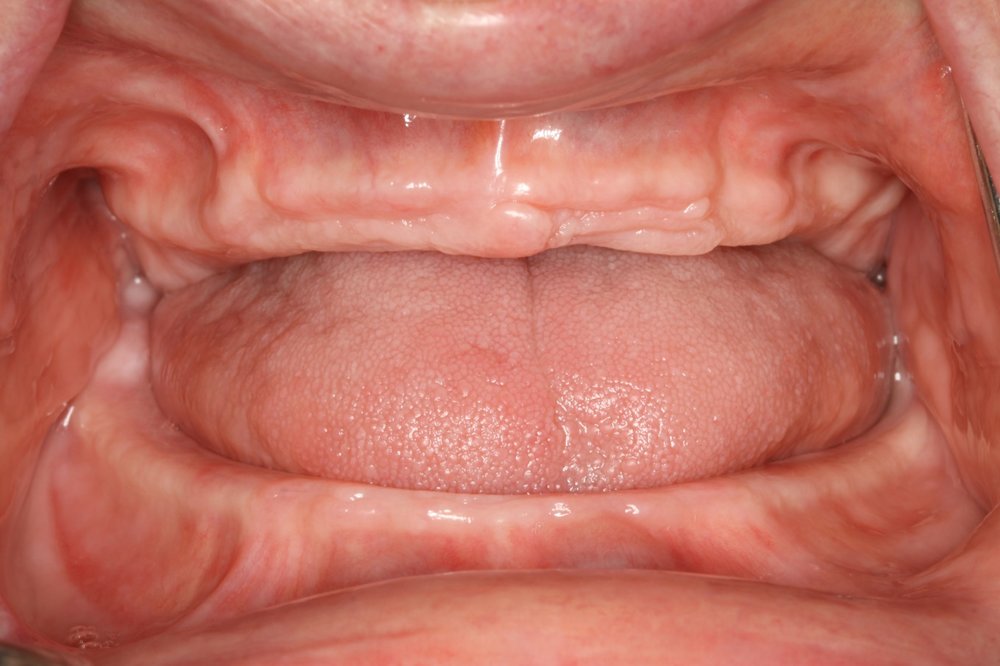
My name is David and I am an implant educator with a good knowledge of the cost of whole mouth dental implants as we have a lot of dental implant patients come to our office for complimentary second opinions to find about quality dental implants cost. Investing in whole mouth dental implants is a significant decision that can profoundly impact your quality of life. For individuals experiencing extensive tooth loss, whole mouth dental implants offer a transformative solution that not only restores the natural appearance of your smile but also enhances oral health and overall well-being. Understanding the cost of whole mouth dental implants in Illinois is crucial for making an informed decision. This article delves into the various aspects influencing dental implant costs, providing transparency and highlighting the long-term benefits of this investment.
The cost of whole mouth dental implants in Illinois varies based on several factors, including the number of implants, materials used, and the specific dental practice. On average, a whole mouth dental implant procedure can start from $395 per month.
In order to see if you are a candidate for dental implants and get the exact cost of implants based on your jaw bone density, you can book your initial complimentary bone scan consultation with an implant specialist by clicking here.
In This Article
What Are Whole Mouth Dental Implants?
Whole mouth dental implants are a comprehensive tooth replacement solution designed to restore an entire arch of missing teeth. Unlike traditional dentures or bridges, which rely on surrounding teeth for support, whole mouth implants are anchored directly into the jawbone. This anchorage provides unparalleled stability and functionality, allowing patients to eat, speak, and smile confidently. Whole mouth dental implants typically involve the placement of multiple titanium posts into the jawbone, which serves as artificial tooth roots. These posts support a full set of prosthetic teeth, creating a seamless and natural-looking smile that mimics the appearance and function of natural teeth.

Figure 1 Whole mouth dental implants parts
Why Choose Whole Mouth Dental Implants Over Traditional Alternatives?
Opting for whole mouth dental implants over traditional alternatives like dentures or partial implants offers several significant advantages:
Stability and Comfort
Unlike removable dentures, whole mouth dental implants are fixed in place, eliminating the discomfort and inconvenience of removable options. This stability allows for normal eating and speaking without fearing teeth shifting or slipping.
Enhanced Functionality
whole mouth implants restore the full functionality of natural teeth, enabling patients to enjoy various foods without restrictions. This improvement in oral function can significantly enhance the overall quality of life.
Longevity and Durability
Whole mouth dental implants can last a lifetime with proper care, making them a more durable and cost-effective solution than dentures, which may need frequent adjustments or replacements.
Preservation of Oral Health
Whole mouth implants help maintain the jawbone’s integrity, preventing the bone loss that often occurs with missing teeth. This preservation is essential for maintaining facial structure and overall oral health.
Natural Appearance
whole mouth dental implants are designed to look and feel like natural teeth, providing a seamless blend with your existing smile. This natural appearance boosts self-confidence and enhances social interactions.
Factors That Influence Whole Mouth Dental Implant Costs
Several factors contribute to the overall cost of whole mouth dental implants in Illinois. Understanding these elements can help you navigate the financial aspects of this investment:
Materials Used
The quality and type of materials used in dental implants can significantly affect the cost. High-grade titanium posts and premium prosthetic teeth generally come at a higher price but offer superior durability and aesthetics.
Technology and Equipment
Advanced technologies, such as digital scanning and 3D printing, enhance the precision and efficiency of dental implant procedures. Clinics that invest in state-of-the-art equipment may have higher costs but provide better outcomes.
Surgeon Expertise
The experience and reputation of the dental implant specialist play a crucial role in the cost. Highly skilled and renowned specialists typically charge more due to their expertise and the quality of care they provide.
Complexity of the Procedure
The complexity of each case, including the number of implants required and the jawbone condition, can influence the overall cost. More complex cases may require additional procedures, such as bone grafts, increasing the total expense.
Geographic Location
The cost of dental implants can vary based on the location of the dental clinic in Illinois. Urban areas like Chicago may have higher prices than rural regions due to differences in overhead costs and market demand.
Additional Treatments
Pre-surgical procedures, such as bone grafting or sinus lifts, and post-surgical care can add to the overall cost. These additional treatments are sometimes necessary to ensure the success of the implant procedure.
Average Cost of whole mouth Dental Implants in Illinois, IL
The cost of whole mouth dental implants in Illinois can vary widely based on the abovementioned factors. On average, patients can expect to start from $30000 for a whole mouth dental implant solution. This range typically includes the placement of 4 to 6 implants per arch, along with the prosthetic teeth and necessary procedures to ensure a successful outcome.
Market Trends
Recent advancements in dental technology and increased competition among dental clinics in Illinois have contributed to more competitive pricing. However, the high quality and long-term benefits of whole mouth dental implants continue to make them a worthwhile investment for many patients.
The Impact of Dentist Experience and Reputation on Cost
The experience and reputation of your dental implant specialist can significantly influence the cost of whole mouth dental implants. Highly experienced dentists with a strong reputation in implant dentistry can often command higher fees due to their proven track record of successful implant procedures and patient satisfaction.
Expertise and Skill
Dentists with extensive training and experience in implant dentistry bring higher skill and precision to the procedure. Their expertise can lead to better outcomes, reduced complications, and a smoother recovery process, justifying the higher cost.
Reputation and Trust
A dentist’s reputation within the community and among industry peers can impact pricing. Renowned specialists highly regarded by other dental professionals and patients may charge more for their services, reflecting the trust and confidence placed in their abilities.
Quality of Care
Experienced and reputable dentists often provide a higher standard of care, including personalized treatment plans, advanced diagnostic techniques, and meticulous attention to detail. This enhanced quality of care contributes to the overall cost and ensures better results and patient satisfaction.
Long-Term Success
Investing in a skilled and reputable implant specialist can lead to long-term success and durability. The initial higher cost may be offset by the reduced need for additional procedures or adjustments in the future, making it a cost-effective choice in the long run.
Types of whole mouth Dental Implants and Their Cost Differences
There are several types of whole mouth dental implant systems, each with its own cost implications. Understanding the differences between these systems can help you make an informed decision based on your specific needs and budget.
All-on-4 Dental Implants
All-on-4 dental implants involve placing four strategically positioned implants in the jawbone to support a full arch of prosthetic teeth. This method is often more cost-effective than traditional whole mouth implants, requiring fewer implants while still providing stability and functionality. The average cost for All-on-4 implants ranges from $20,000 to $35,000 per arch.
Traditional full-arch implants
Traditional full-arch implants involve placing more implants, typically six to eight per arch, to support the prosthetic teeth. This approach provides exceptional stability and is suitable for patients with sufficient jawbone density. The cost for traditional full arch implants is generally higher, ranging from $30,000 to $50,000 per arch, due to the increased number of implants and the complexity of the procedure.
Zygomatic Implants
Zygomatic implants are a specialized type used for patients with severe bone loss in the upper jaw. These implants are anchored in the zygomatic bone (cheekbone) rather than the maxillary bone, eliminating the need for bone grafting. Zygomatic implants are more complex and costly, start from $40,000
Hybrid Solutions
Some clinics offer hybrid solutions that combine different implant types to optimize cost and functionality. For example, combining All-on-4 and traditional implants can provide enhanced stability while managing costs effectively.
Choosing the Right Type
The choice between these implant types depends on various factors, including the patient’s bone density, budget, and specific dental needs. Consulting with an experienced implant specialist can help determine the most suitable and cost-effective option.
Hidden Costs and What to Watch Out For
When considering whole mouth dental implants, it’s essential to be aware of potential hidden costs that may not be immediately apparent. These additional expenses can significantly impact the overall cost of the procedure.
Pre-Surgical Procedures
Certain patients may require pre-surgical procedures such as bone grafting, sinus lifts, or extractions before the implant placement can occur. These procedures are necessary to ensure a stable foundation for the implants but can add several thousand dollars to the total cost.
Diagnostic Imaging and Tests
Comprehensive diagnostic imaging, including CT scans and X-rays, is often required to plan the implant placement accurately. These imaging services are essential for creating a precise treatment plan but may incur additional fees.
Medications and Supplies
Post-surgical medications, such as antibiotics, pain relievers, and specialized dental supplies, can contribute to the overall cost. These items are necessary for managing pain and preventing infections during healing.
Follow-Up Appointments
Multiple follow-up appointments are typically required to monitor the healing process and ensure the implants integrate correctly with the jawbone. These visits may involve additional costs not included in the initial estimate.
Prosthetic Components
The cost of abutments, crowns, bridges, and other prosthetic components can vary based on the materials used and the complexity of the restoration. High-quality materials may come at a higher price but offer better durability and aesthetics.
Emergency Care
In some cases, unforeseen complications may arise, necessitating emergency care or additional treatments. Having a contingency budget for such scenarios is advisable to avoid financial strain.
Insurance Limitations
Dental insurance often covers only a portion of the implant costs, if at all. Understanding the limitations of your insurance coverage is crucial to avoid unexpected out-of-pocket expenses.
Transparency and Planning
To avoid surprises, discussing all potential costs with your dental implant specialist upfront is essential. Request a detailed breakdown of the estimated costs and inquire about any possible additional expenses that may arise during the treatment process.
Insurance Coverage and Financing Options for whole mouth Implants
Navigating the financial aspects of whole mouth dental implants can be challenging, but understanding your insurance coverage and available financing options can make the investment more manageable.
Dental Insurance Coverage
Most dental insurance plans do not fully cover the cost of dental implants, as they are often considered a cosmetic procedure. However, some plans may offer partial coverage or discounts for implant procedures. It’s essential to review your insurance policy and consult with your provider to understand the extent of your coverage.
Financing Options
Many dental clinics in Illinois offer financing options to help patients manage the cost of whole mouth dental implants. These options may include:
- Payment Plans: Spread the cost of the procedure over several months or years, making it more affordable by breaking down the total expense into manageable payments.
- Dental Loans: Specialized loans designed for dental procedures, often with competitive interest rates and flexible repayment terms.
- Credit Cards: A credit card can provide immediate funding for the procedure, though interest rates and repayment terms should be carefully considered.
- Health Savings Accounts (HSAs) and Flexible Spending Accounts (FSAs): These accounts allow you to use pre-tax dollars to pay for eligible medical and dental expenses, including implants.
In-House Financing
Some dental clinics offer in-house financing options, providing flexible payment plans tailored to individual patient needs. These plans may offer lower interest rates or deferred payments, making the procedure more accessible.
Third-Party Financing
Third-party financing companies specialize in providing loans for medical and dental procedures. These companies can offer various financing options, including low interest rates and extended repayment periods.
Applying for Financing
When considering financing options, it’s important to:
- Compare Offers: Evaluate different financing options to find the one best suits your financial situation.
- Understand Terms: Carefully review the terms and conditions, including interest rates, repayment schedules, and any fees associated with the loan.
- Plan Ahead: Apply for financing early in the treatment planning to ensure funds are available when needed.
Consulting with Your Dental Clinic
Discuss your financial concerns with your dental implant specialist. Many clinics are willing to work with patients to create customized payment plans or recommend financing options that fit their budgets.
Are Dental Implants Worth the Cost?
Investing in whole mouth dental implants is a significant financial commitment, but the long-term benefits often outweigh the initial expense. Here are several reasons why dental implants are considered worth the cost:
Improved Quality of Life
Whole mouth dental implants restore the ability to eat, speak, and smile confidently, significantly enhancing the overall quality of life. This improvement can lead to better social interactions, increased self-esteem, and a more active lifestyle.
Long-Term Durability
Dental implants are designed to last a lifetime with proper care, making them a durable and cost-effective solution compared to other tooth replacement options that may require frequent replacements or adjustments.
Preservation of Oral Health
Implants help maintain the jawbone’s integrity, preventing bone loss and preserving facial structure. This preservation is essential for long-term oral health and overall physical well-being.
Enhanced Aesthetics
Whole mouth dental implants provide a natural-looking and aesthetically pleasing smile, which can positively impact personal and professional relationships.
Reduced Maintenance
Unlike dentures, which require daily cleaning and special care, dental implants function like natural teeth and require the same oral hygiene practices, making them easier to maintain in the long run.
Financial Consideration
While the initial cost of whole mouth dental implants may be higher than other options, their longevity and minimal need for future procedures make them a more economical choice over time.
Health Benefits
Improved oral health can have broader health benefits, including better digestion, reduced risk of gum disease, and enhanced overall health, investing in dental implants a holistic improvement.
Increased Self-Confidence
A complete and beautiful smile can boost self-confidence, encouraging individuals to engage more fully in social and professional activities.
Cost Savings Through Preventative Care with Implants
Investing in whole mouth dental implants can lead to significant cost savings in the long run by preventing various dental issues associated with traditional dentures and other tooth replacement methods.
Prevention of Bone Loss
Dental implants stimulate the jawbone, preventing the bone resorption with missing teeth. Maintaining bone density reduces the need for future bone grafting procedures, saving on potential future costs.
Reduced Dental Problems
Traditional dentures can cause irritation, sores, and infections in the mouth, leading to additional dental visits and treatments. Implants eliminate these issues, reducing the need for ongoing dental care related to dentures.
Longevity and Minimal Repairs
whole mouth dental implants are highly durable, requiring fewer repairs and replacements than dentures, which may need frequent adjustments and relining.
Lower Maintenance Costs
Dental implants require the same daily care as natural teeth, without requiring specialized cleaning solutions or adhesives used for dentures. This simplicity reduces the ongoing maintenance costs associated with tooth replacement.
Enhanced Oral Hygiene
Implants facilitate better oral hygiene practices by allowing patients to brush and floss more effectively, preventing plaque buildup and reducing the risk of cavities and gum disease.
Avoidance of Dietary Restrictions
whole mouth dental implants restore full chewing functionality, allowing patients to enjoy various foods without restrictions. This freedom can lead to better nutrition and overall health, reducing healthcare costs associated with poor diet.
Long-Term Financial Benefits
While the upfront cost of implants is higher, their durability and minimal need for future interventions make them a more cost-effective option over time than other tooth replacement methods.
Innovative Technologies That May Reduce Implant Costs
Advancements in dental technology can potentially reduce the cost of whole mouth dental implants by streamlining procedures, enhancing precision, and improving overall efficiency. Here are some innovative technologies contributing to cost reductions:
Digital Scanning and CAD/CAM Technology
Digital scanning and computer-aided design/manufacturing (CAD/CAM) technology allow for precise planning and fabrication of dental implants. These technologies reduce the need for manual adjustments, minimizing errors and lowering the overall cost.
3D Printing
3D printing technology enables the rapid production of custom implant components and prosthetic teeth. This innovation reduces manufacturing costs and turnaround times, making high-quality implants more affordable.
Minimally Invasive Procedures
Advancements in surgical techniques have made implant procedures less invasive, reducing recovery times and associated costs. Minimally invasive procedures also decrease the risk of complications, leading to fewer follow-up visits and additional expenses.
Guided Implant Surgery
Guided implant surgery uses computer-generated guides to ensure the accurate placement of implants. This precision minimizes the risk of errors and enhances the success rate, reducing the need for corrective procedures and lowering overall costs.
Tele-dentistry
Tele-dentistry allows for remote consultations and follow-ups, reducing the need for in-person visits and associated travel expenses. This convenience can lead to cost savings for both patients and dental clinics.
Enhanced Materials
Innovations in implant materials, such as biocompatible titanium alloys and zirconia, offer improved durability and aesthetics. These advanced materials may increase initial costs but reduce the need for future replacements, resulting in long-term savings.
Automation and AI
Automation and artificial intelligence (AI) are being integrated into dental implant procedures to enhance efficiency and accuracy. These technologies can streamline workflows, reduce labor costs, and improve patient outcomes.
Training and Education
Improved training programs and educational resources for dental professionals enhance their skills and efficiency, leading to better patient care and reduced procedural costs.
Bulk Manufacturing
Advancements in manufacturing processes have enabled bulk production of implant components, driving down costs through economies of scale while maintaining high-quality standards.
Personalized Medicine
Personalized implant solutions tailored to each patient’s unique anatomy and needs reduce the likelihood of complications and improve the success rate, minimizing the need for additional treatments and associated costs.
Conclusion: Making an Informed Decision
Understanding the cost of whole mouth dental implants in Illinois is essential for making an informed and confident decision about oral health. While the investment may seem substantial initially, the long-term benefits; from improved quality of life and oral health to enhanced aesthetics and durability—make whole mouth dental implants a worthwhile choice for many patients. You can navigate the financial aspects by considering factors such as materials, technology, surgeon expertise, and potential hidden costs.
Additionally, exploring insurance coverage and financing options can make this life-changing procedure more accessible. Prioritizing quality and expertise over price alone ensures you receive the best possible care and achieve lasting, natural-looking results. Embrace the opportunity to restore your smile and enhance your overall well-being with whole mouth dental implants.






